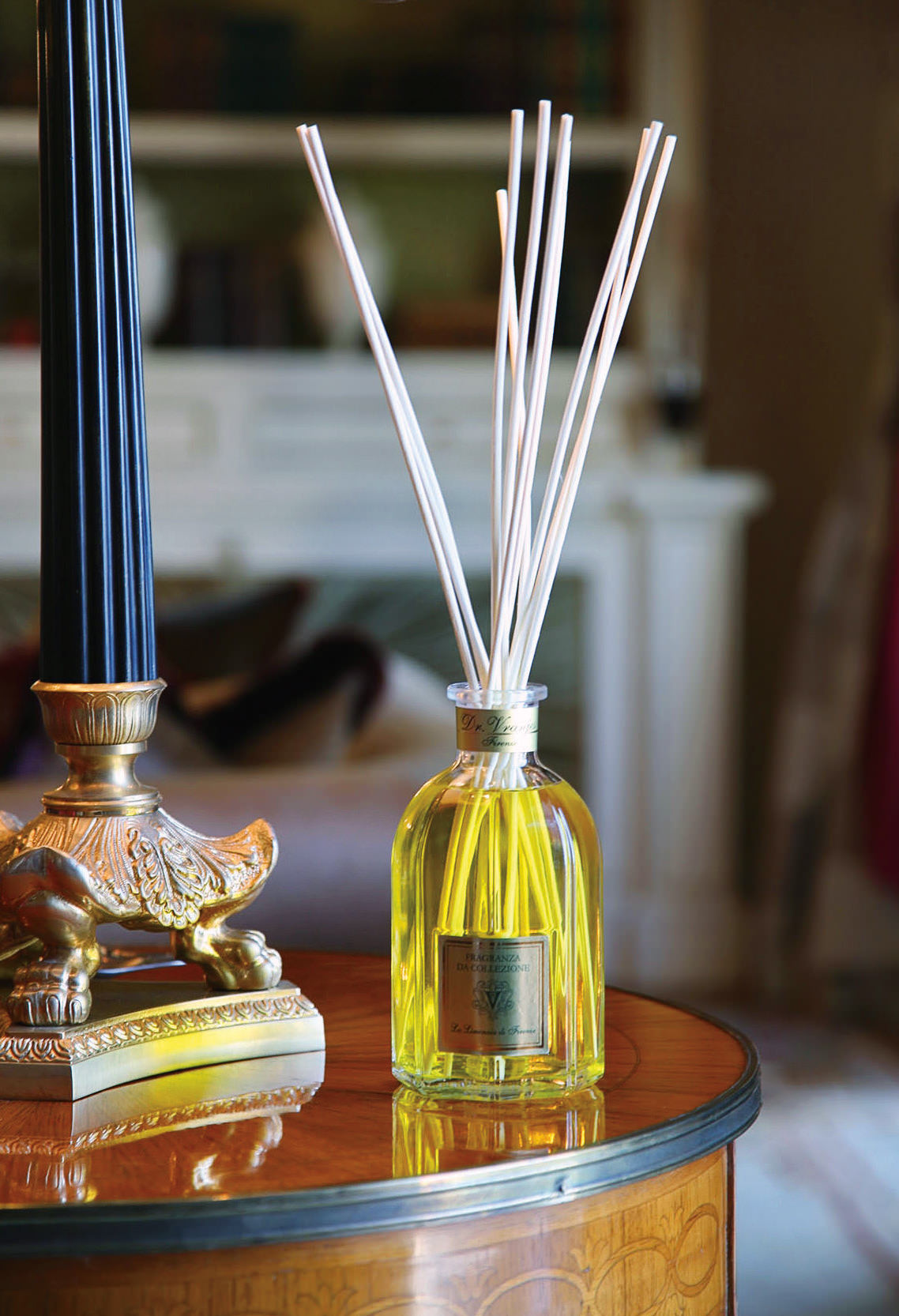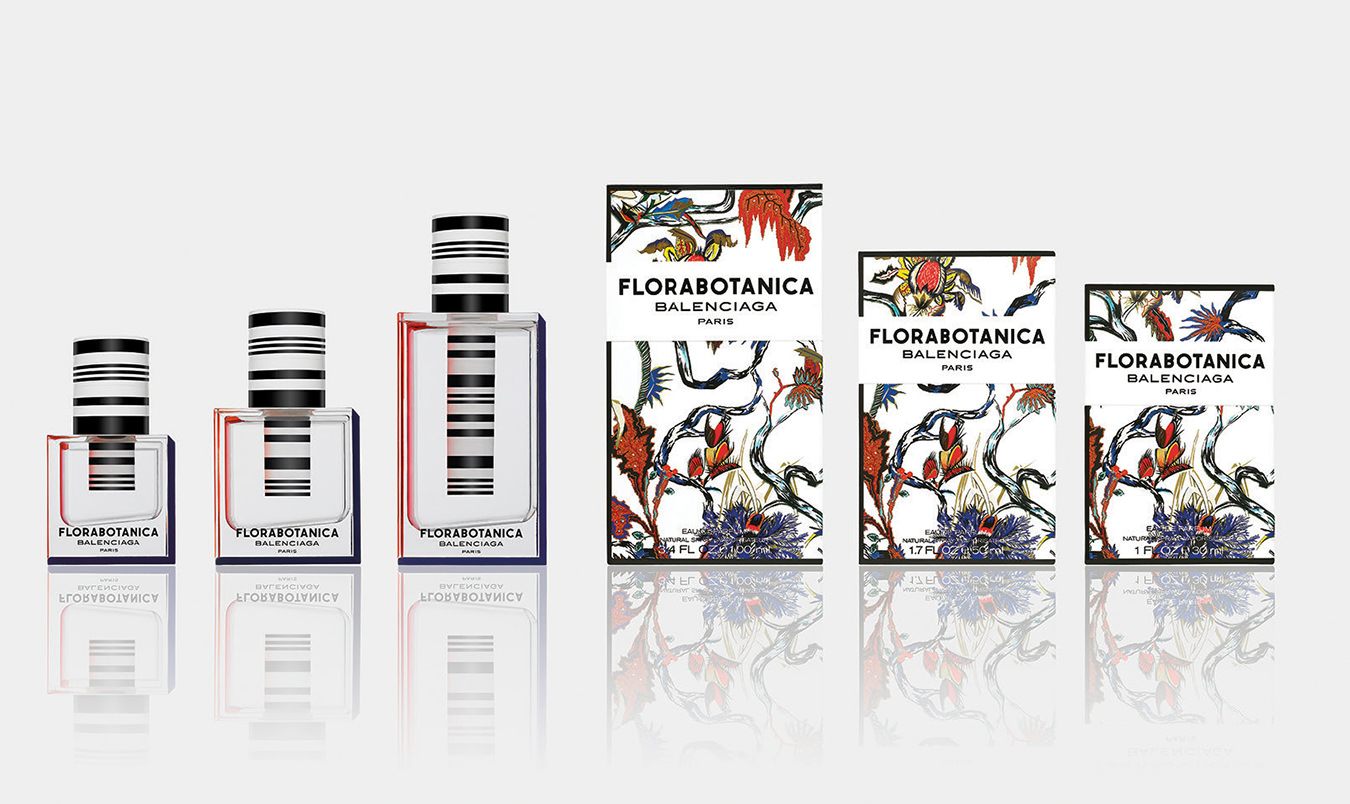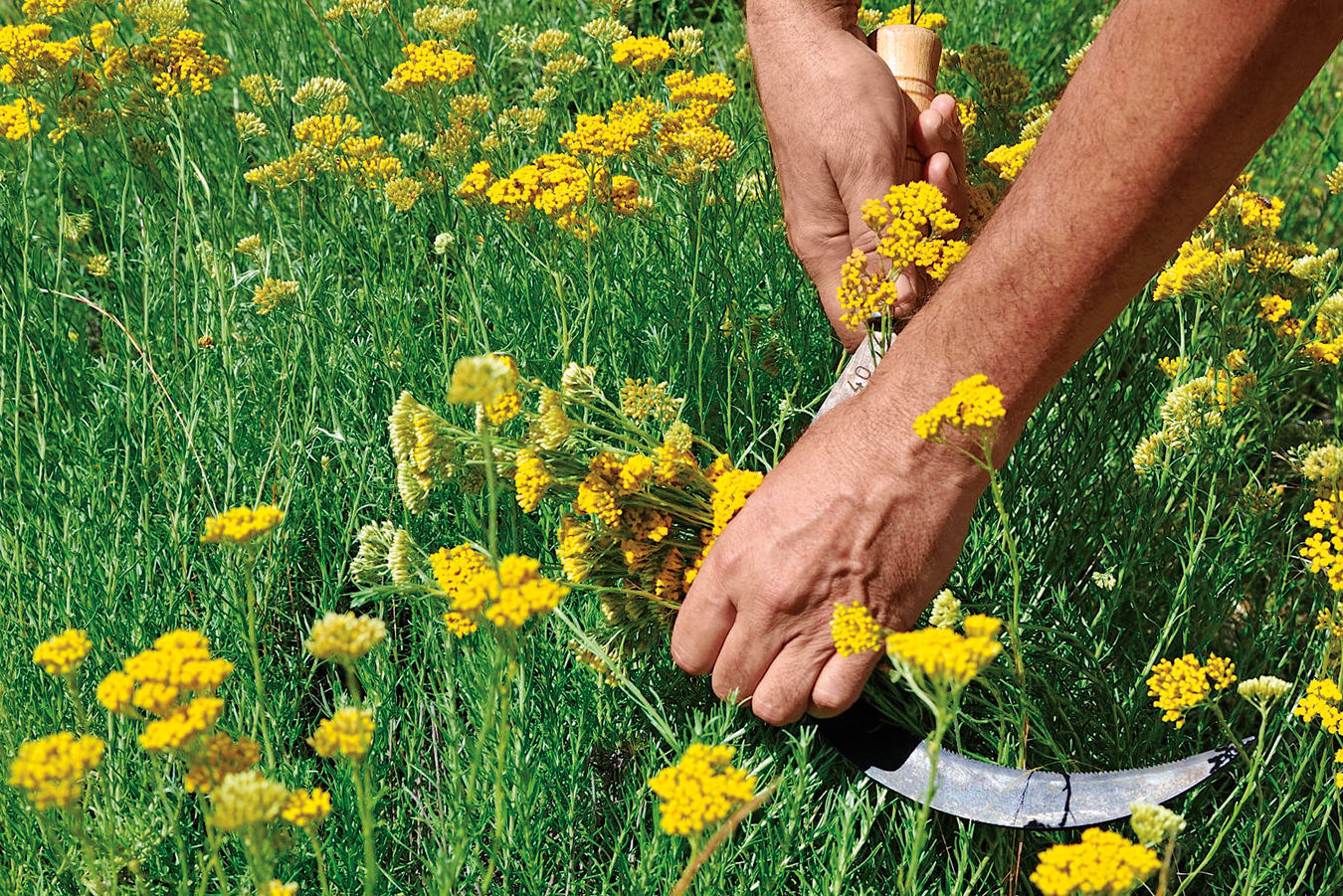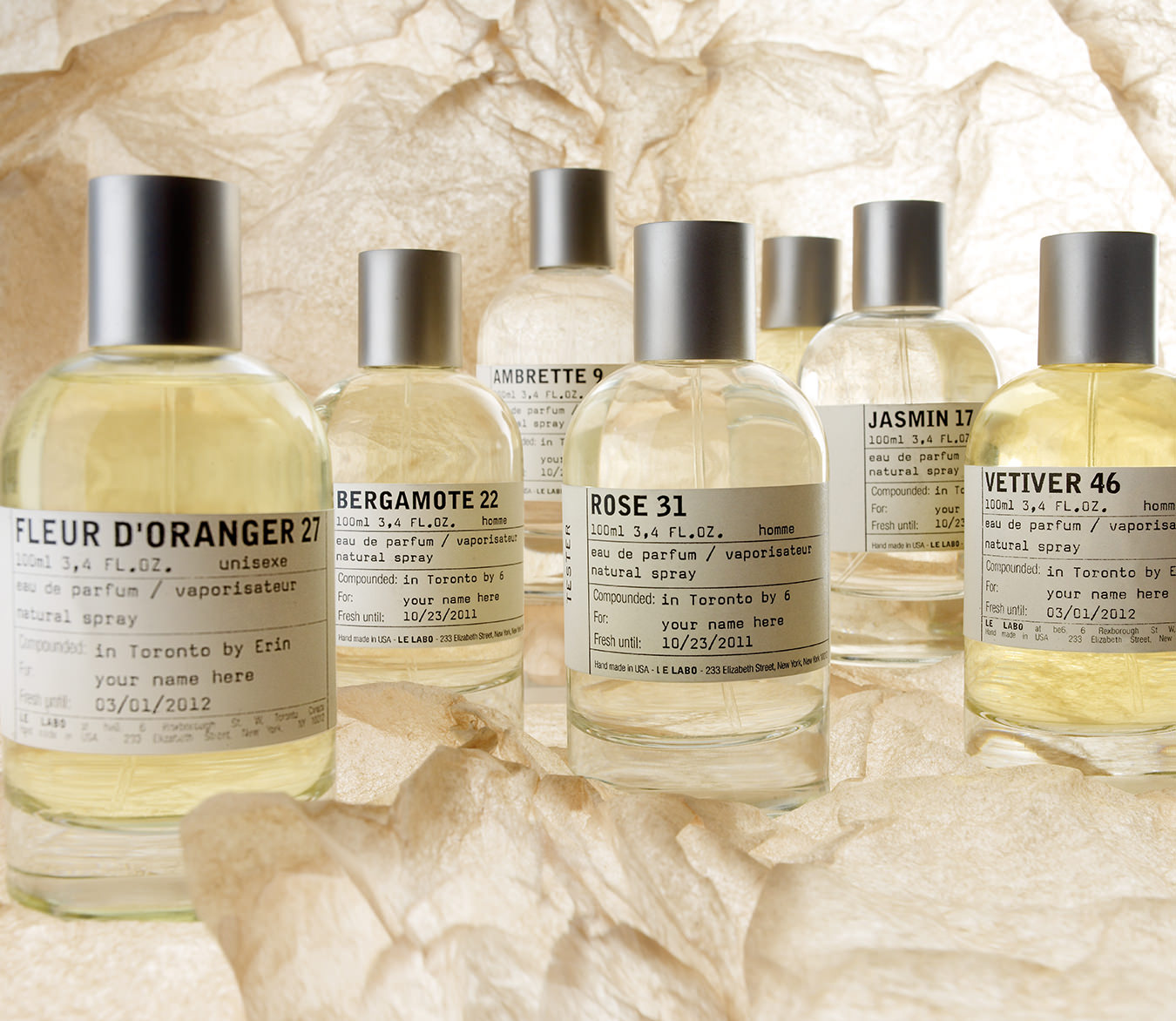An Apothecary Founded by Dominican Friars Offers Gilded Colognes in Florence
Officina Profumo-Farmaceutica di Santa Maria Novella
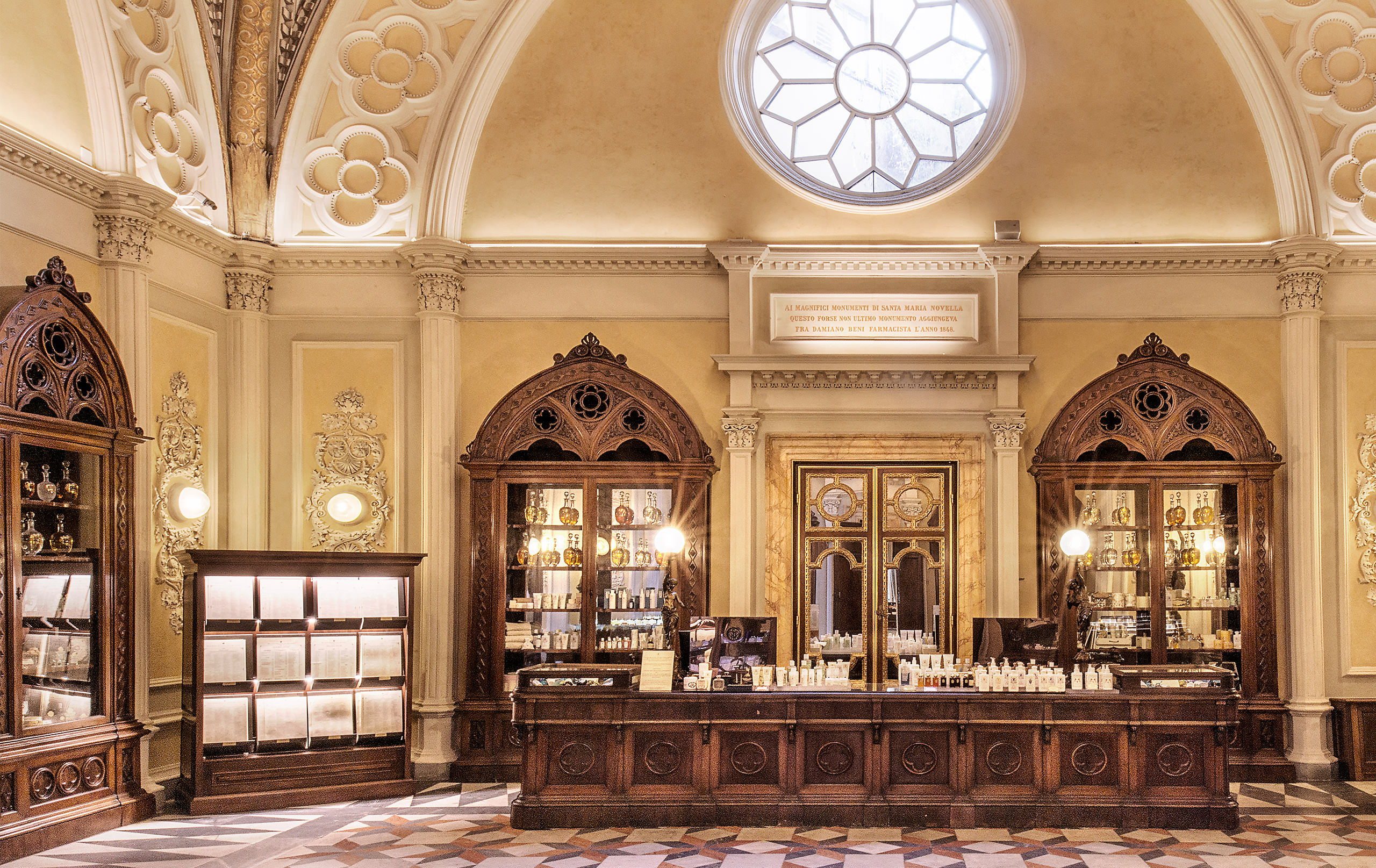
Many eager to smell the history of Officina Santa Maria Novella make the pilgrimage to the historic quarters on Via della Scala, located not far from the city’s bustling train station.
In an unassuming building not far from Florence’s Santa Maria Novella train station is what’s said to be the world’s oldest pharmacy. It’s easy to walk right past the chestnut-brown portone of Officina Profumo-Farmaceutica di Santa Maria Novella on Via della Scala. There is no inkling of the aromatic riches within—soaps, sachets, scents, and skin-care products still made according to ancient formulas. The former church, then convent and apothecary, has stayed in style since its founding.
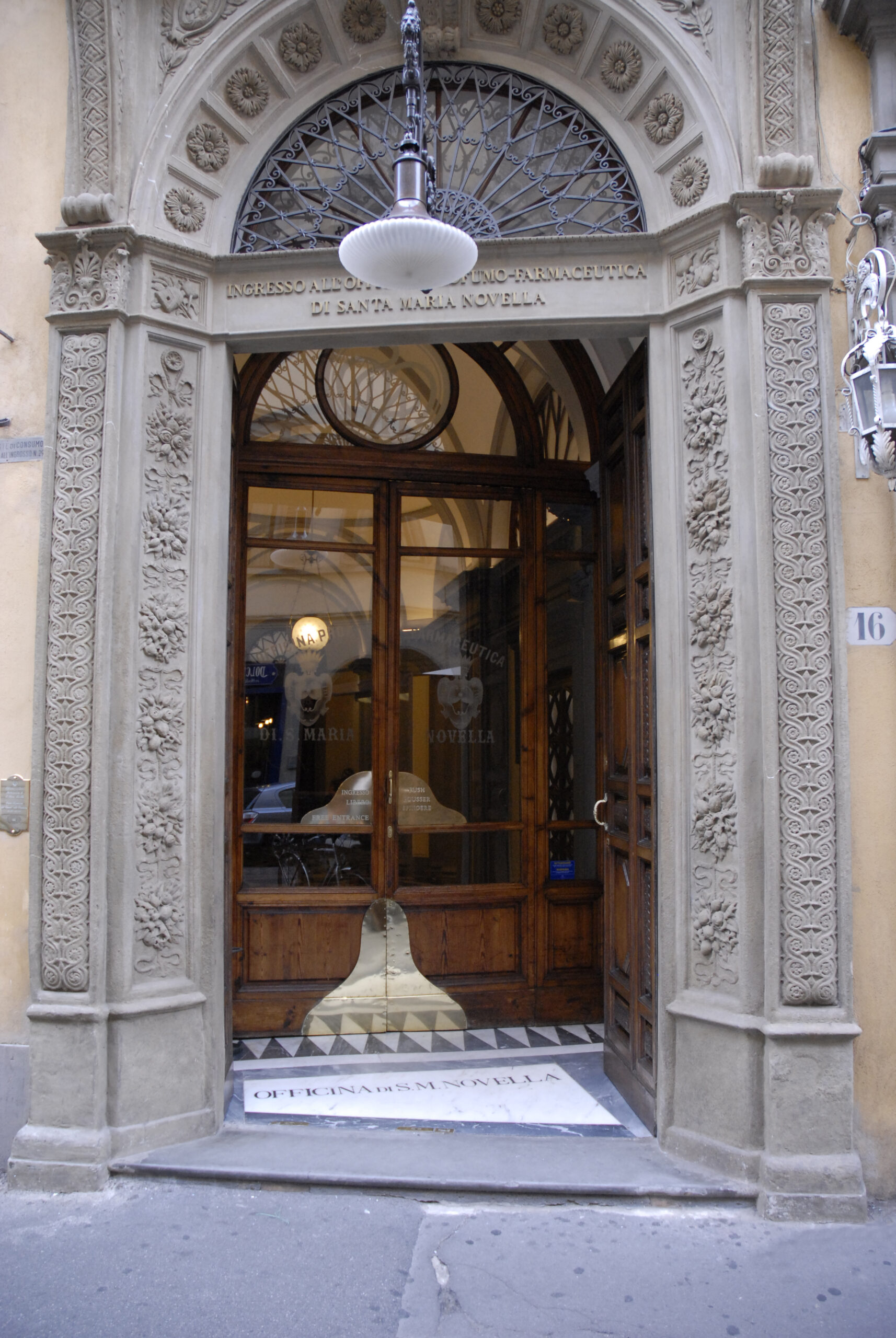
The Officina Santa Maria Novella story officially begins in 1612. But like many Old World stories, especially those tied to the church, its origins predate that. The history of the apothecary dates back to the 13th century when it was a monastic laboratory—Dominican friars began concocting herbal remedies in the convent’s infirmary in the time of Giotto and Dante.
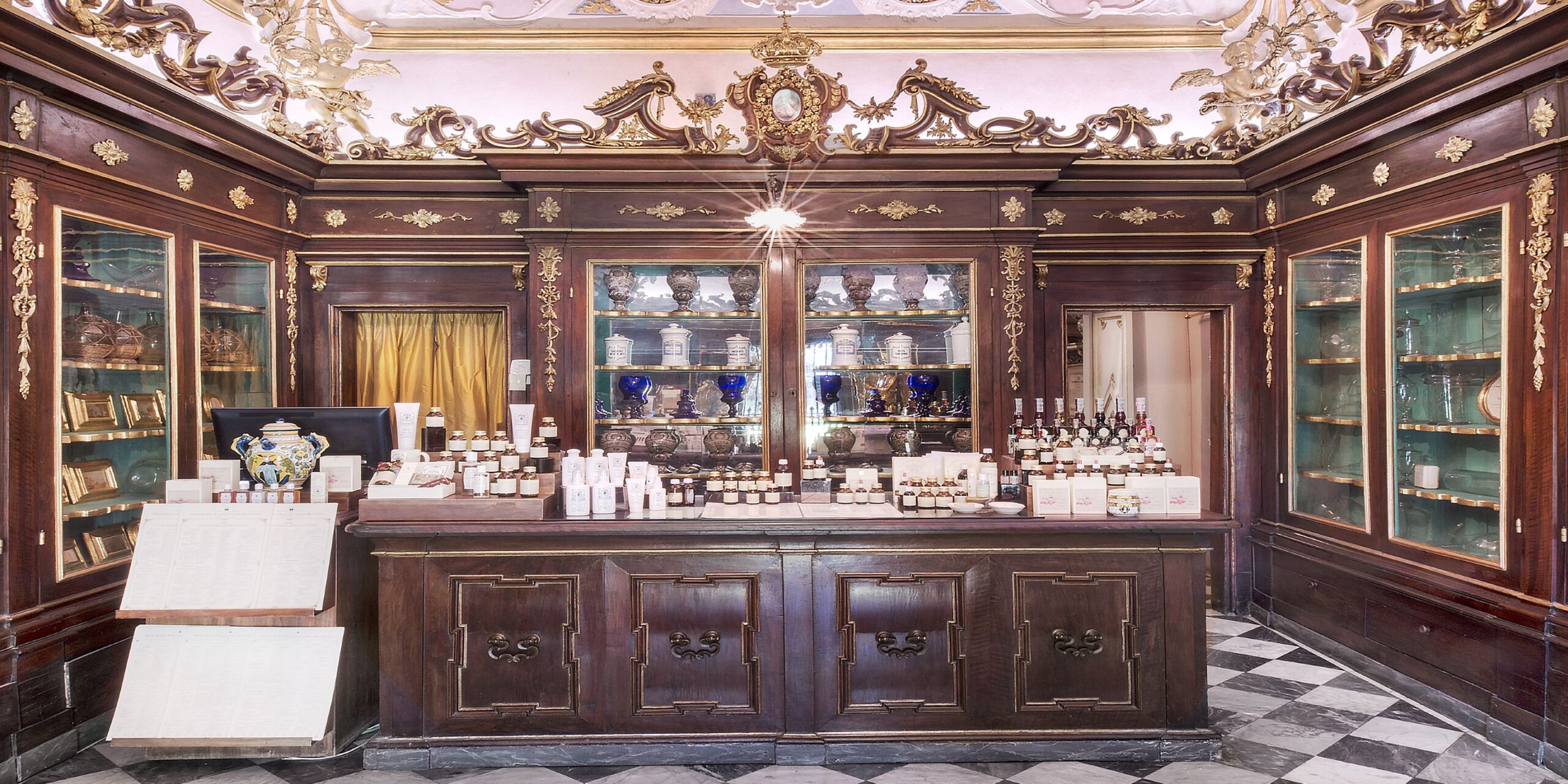
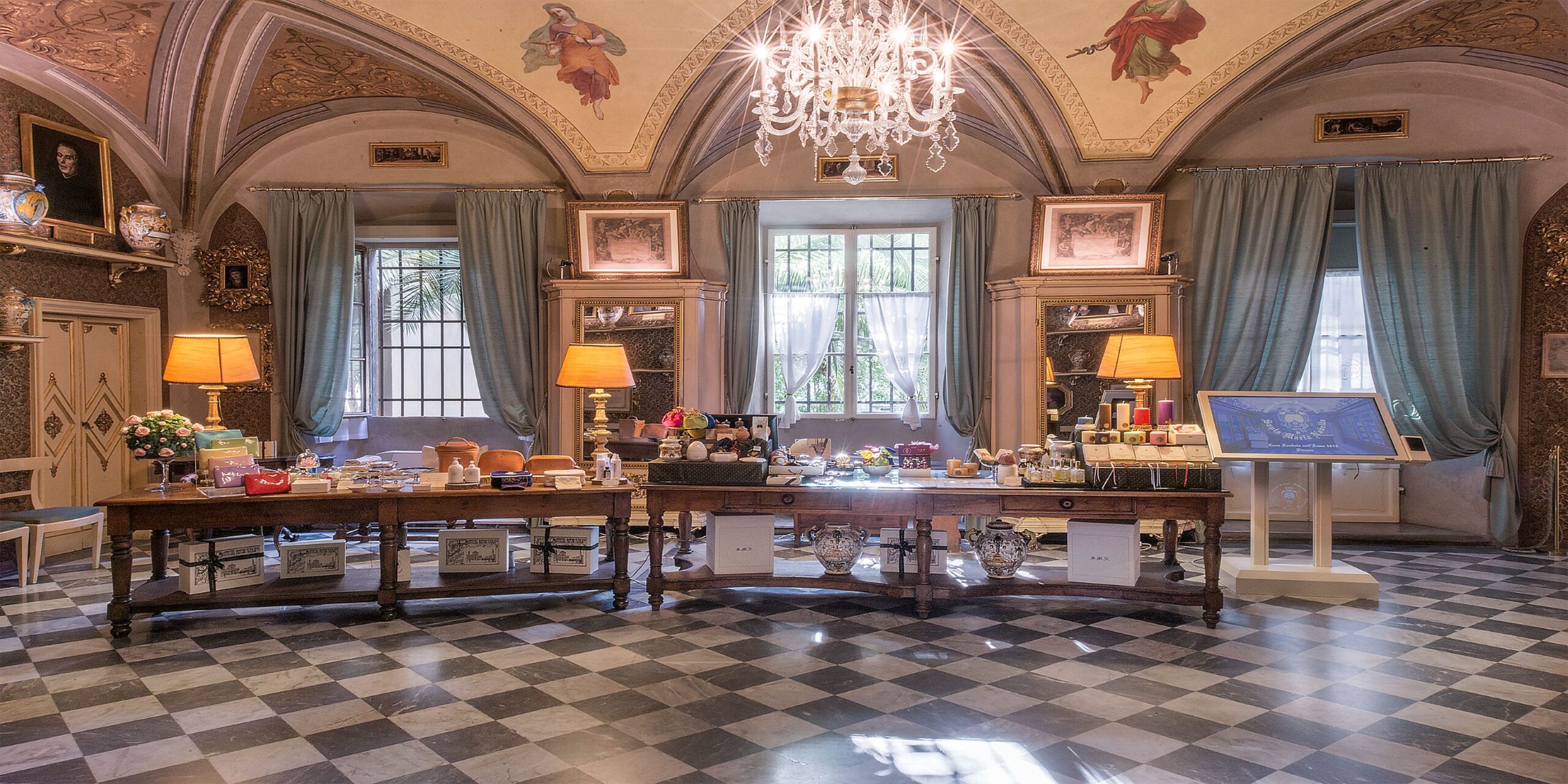
In 1612, when the Dominican friars began selling their herb-based tinctures, balms, and tonics to the public, the Medicis were already steady patrons. When Catherine de Medici became queen of France, she brought Florentine customs to the Paris royal court. One was the wearing of perfume, specifically the one she commissioned Santa Maria Novella to create in her honour, bergamot-based Acqua della Regina (Queen’s Water). The fragrance is still produced today, now called Acqua di S.M. Novella—the company’s first perfume and a continued bestseller.
The present-day range of 45 colognes caters to a variety of tastes. From Acqua di Sicilia, the fresh citrus of Sicily, and Tabacco Toscano, inspired by Tuscan cigars, what sets Santa Maria Novella fragrances apart in an already crowded market of perfumes is their back story. Angeli di Firenze, a fruity floral, was created in 2006 to mark the anniversary of the 1966 flood of Florence (the greatest loss of art and architecture from a natural disaster in 20th-century Europe). The scent is dedicated to the Angeli del Fango, the Mud Angels, the volunteers who helped in the emergency rescue of works of art.
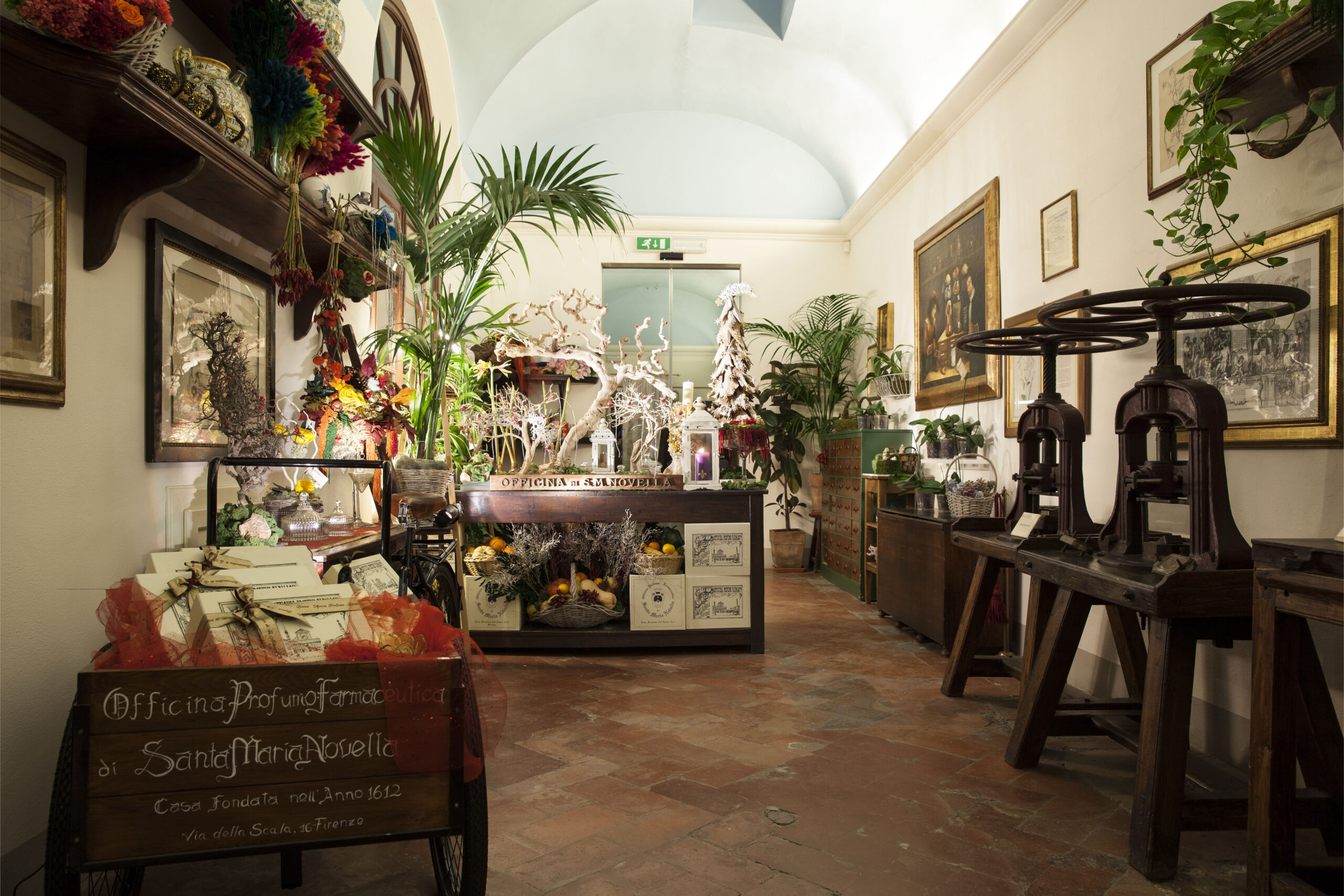
Potpourri is one of Santa Maria Novella’s emblematic products: a mixture of buds, leaves, and flowers typical of the Tuscan hills packed in silk sachets and terra cotta vessels. The antiwrinkle eye contour gel Fluido Antirughe Contorno Occhi is a beauty staple, while the antioxidant skin-care line Aetas Salubris includes a day cream with milk thistle and a regenerative serum made with apple stem cell extract. There is also a wide selection of products designed especially for babies.
Most of the flowers and herbs used in production are sourced from the garden on the premises. Until a few years ago, all production took place in a back room, but now it has shifted to a modern facility nearby. The distinctive packaging—frosted glass bottles, ornately decorated tins, and ceramic pots—is faithful to the company’s original vessels and emblazoned with its official seal.
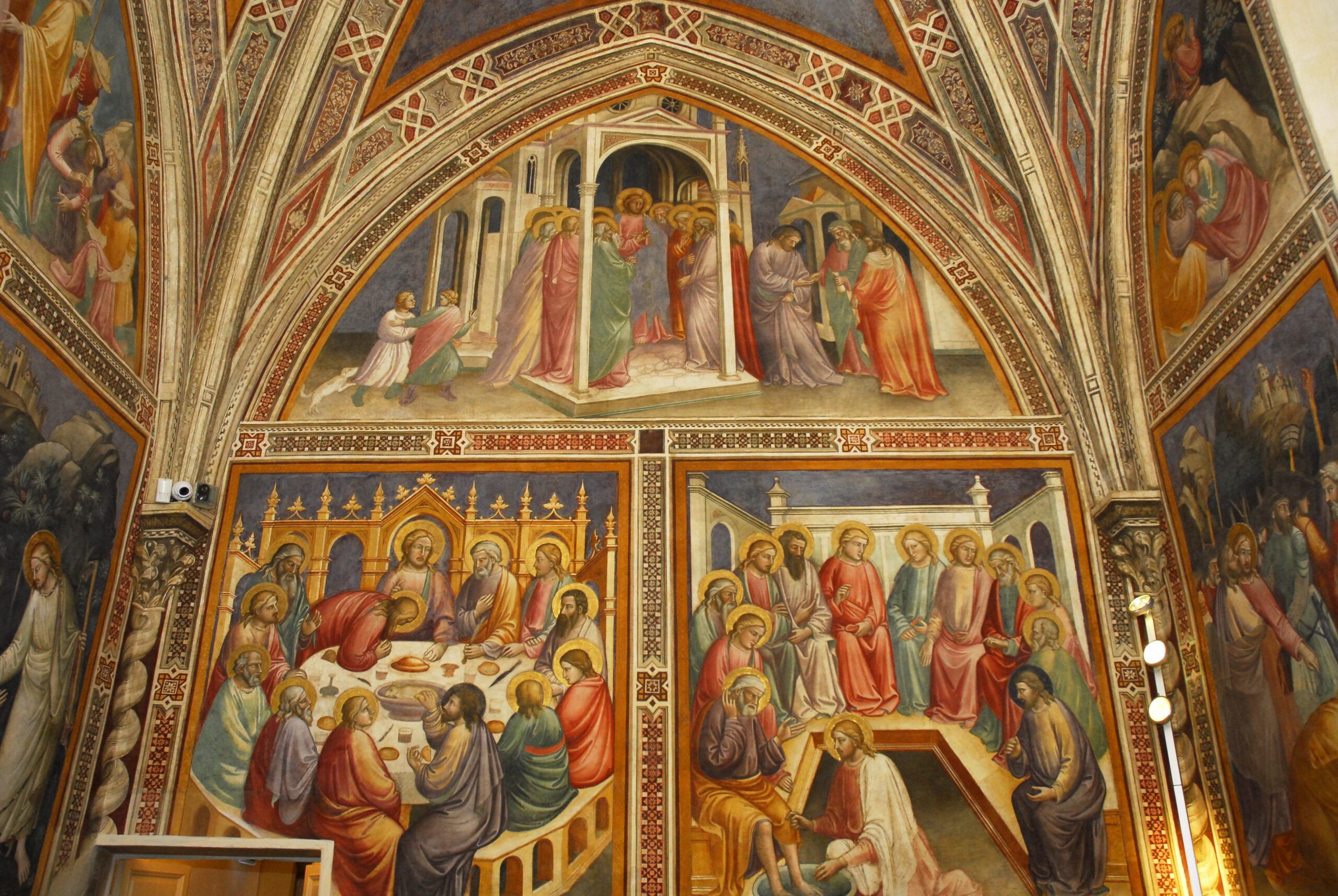
When you step inside Officina Profumo-Farmaceutica di Santa Maria Novella, you are transported to another era—marble inlays in the vestibule, Pietra Serena sandstone, frescoes that summon your eyes to look up, gilded accents, and merchandise housed in 17-century cabinets lining the walls. The original distilling apparatus along with the wooden hammer mill for crushing and pulverizing the dried flowers, the grinder, cast iron press, porcelain vases, ancient soap cutter, and even the friars’ original recipe ledgers (rose water was prescribed as an antiseptic after an outbreak of the plague) rest inside. Today, Officina Santa Maria Novella continues to manufacture by hand, turning out 500 bars of soap a day, each bar then aged for a month before being hand-chiselled into its final shape.
When in Florence, many eager to smell the history at Officina Santa Maria Novella make the pilgrimage to the historic quarters on which the Medici family bestowed the title of Grand Ducal Apothecary.

